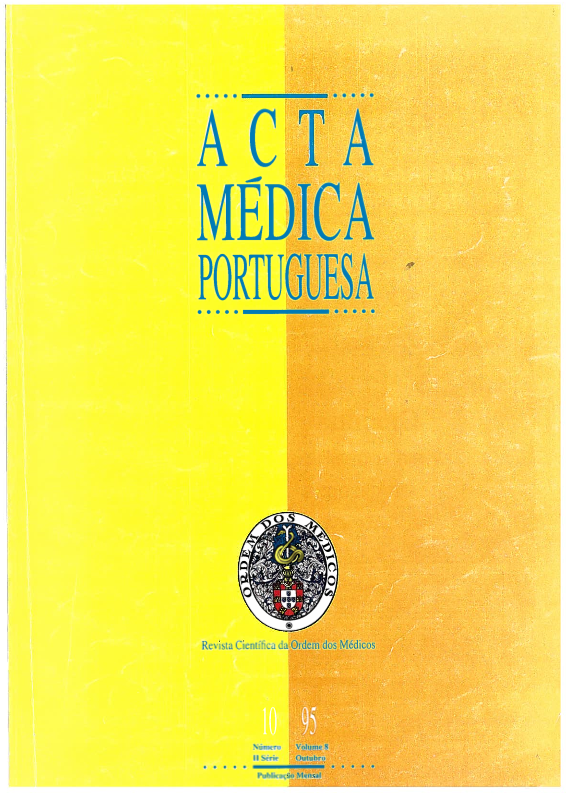Pleural effusion of non-neoplastic etiology in a patient with a rare form of myeloma.
DOI:
https://doi.org/10.20344/amp.2746Abstract
Pleural effusions can be a manifestation of several nosological entities. Etiologic diagnosis involves a good clinical history, followed by thoracocentesis with pleural biopsy and eventually bronchoscopy or thoracoscopy. The differentiation between transudates and exudates, by the biochemical characteristics of the pleural effusions, can orientate the underlying disorder. It is known that there are more than 35 different etiological entities of exudative pleural effusions. However, pneumonia, malignancies, pulmonary embolism, abdominal disease and tuberculosis are the major causes (around 90%). Transudative effusions are more frequently due to congestive heart failure, renal or hepatic failure. The AA present a clinical situation of pleural effusion, the etiology of which was initially attributed to congestive heart failure, with a good response, clinical and radiological response to the treatment established. However the laboratory alteration persisted (anaemia, renal failure, acute inflammation). The subsequent study showed the existence of a rare syndrome, a Myeloma Ig M lambda that can lead to differential diagnosis with Waldenström's Macroglobulinemia, about which the authors make some theoretical considerations showing the difficulty in etiologic diagnosis of some pleural effusions.Downloads
Downloads
How to Cite
Issue
Section
License
All the articles published in the AMP are open access and comply with the requirements of funding agencies or academic institutions. The AMP is governed by the terms of the Creative Commons ‘Attribution – Non-Commercial Use - (CC-BY-NC)’ license, regarding the use by third parties.
It is the author’s responsibility to obtain approval for the reproduction of figures, tables, etc. from other publications.
Upon acceptance of an article for publication, the authors will be asked to complete the ICMJE “Copyright Liability and Copyright Sharing Statement “(http://www.actamedicaportuguesa.com/info/AMP-NormasPublicacao.pdf) and the “Declaration of Potential Conflicts of Interest” (http:// www.icmje.org/conflicts-of-interest). An e-mail will be sent to the corresponding author to acknowledge receipt of the manuscript.
After publication, the authors are authorised to make their articles available in repositories of their institutions of origin, as long as they always mention where they were published and according to the Creative Commons license.









